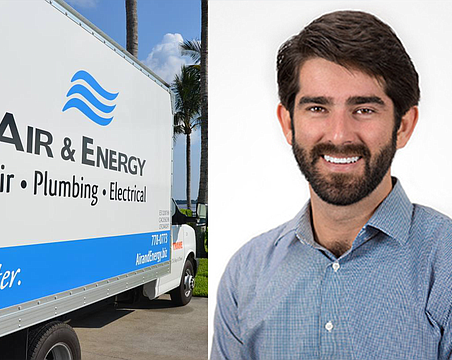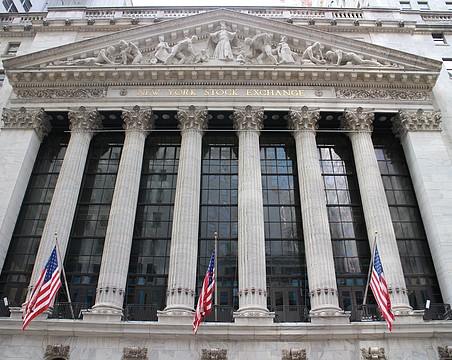Home builder for sale
HOMEBUILDERS by Jean Gruss | Editor/Lee-Collier
How much is WCI worth? Carl Icahn said $22 a share. When management didn't answer the question, analyst Ivy Zelman issued a stunning valuation.
Ivy Zelman, the bearish Credit Suisse homebuilding analyst, drove straight to the point on a May 8 conference call with WCI Communities Inc.'s executives.
How do you value a homebuilder whose primary business is selling condos in the deteriorating Florida residential market? she asked.
WCI's executives didn't answer Zelman's pointed question. And you have to say: That says a lot about the Bonita Springs-based homebuilder's precarious situation and the widespread uncertainty gripping the state's homebuilding industry. The executives' non-response goes to the heart of the debate over the health of Florida's residential real estate market because the outcome may indicate whether investors expect it to rebound soon or be mired in a multiyear slump.
In a note to clients the following day, Zelman answered her own question: Based on her worsening outlook for Florida housing later this year, WCI is now worth just $12.50 per share. That's 43% less than the $22 per share that Carl Icahn offered recently and 40% below where the shares traded recently.
Because the board refused Icahn's request to remove a poison-pill provision designed to keep any single shareholder from gaining control of the company, his $22-a-share offer expired May 18. WCI's board says it has been meeting with other prospective buyers, a fact that has continued to prop up the company's shares above $21 (symbol: WCI). It hired the big Wall Street firm of Goldman Sachs and corporate lawyers at Simpson Thatcher & Bartlett.
Icahn has accused the board of bluffing. "From our perspective, this sale process is just another camouflage to entrench yourselves for another year," Icahn said in a May 31 letter. "Stockholders deserve results, not deception."
To call their bluff, Icahn urged the board to delay the June 15 annual meeting by 30 days so a sale can be completed. "It is our belief that many of the larger stockholders support a postponement of the annual meeting until after the consummation of the sale process," Icahn wrote. He has said he will be a bidder.
The company says it welcomes Icahn's bid in its auction and assured him access to the company's financial documents now that he has signed a confidentiality agreement.
"We look forward to assisting you with these materials so that you can catch up with others who are far along in the process," wrote WCI Chairman Don Ackerman in a letter to Icahn dated June 1. The letter says the company has not decided whether to postpone the annual meeting.
But Icahn hinted that his next offer might not be so rich. "I hope for the stockholders' sake that WCI has a bid for the company better than $22 a share, or else it was reprehensible to take this opportunity away from them," he says. Icahn now owns nearly 15% of the company.
If WCI doesn't come up with a buyer willing to pay more than $22, it wouldn't be surprising to see shareholders elect Icahn's slate of directors, a group that includes Miami-Sarasota developer Hugh Culverhouse Jr.
That would most likely spell the end of the company built over the last two decades by Al Hoffman, one of Florida's most successful developers who is now U.S. ambassador to Portugal. In 2004, the National Association of Home Builders named WCI America's Best Builder.
An ardent Republican, Hoffman loaded WCI's board of directors with a who's who of business and Republican politicos, including Philip Handy, the recent past chairman of the Florida Board of Education, and Kathleen Shanahan, Jeb Bush's chief of staff. If he survives the shareholder vote, Charles Cobb Jr., former chairman and CEO of Arvida Corp. and also a former U.S. ambassador to Iceland, will become chairman, replacing Don Ackerman.
IIcahn hasn't said what his strategy is for WCI. But Icahn is likely to break up the company by selling off its assets, firing top management and making a tidy profit after paying off the company's substantial debt.
Although Icahn is not always successful acquiring companies, the private-equity investor's high profile usually forces change in target companies, resulting in rising share prices.
One thing is certain: Icahn has succeeded in forcing WCI's board to find a buyer for the company. In recent months, the board has shifted its primary strategy from managing through the downturn to an outright sale.
Notwithstanding Icahn's accusations of the board stalling, the pressure is on the board to make a deal to sell the company before the June 15 shareholder's meeting. In a May 16 letter to shareholders, Ackerman and Jerry Starkey, WCI's president and CEO, say they're working with Goldman Sachs to strike a deal with a buyer "as quickly as possible."
WCI's board must now convince shareholders that they can get a better price for the company than what Icahn offered. They need to do that by the annual meeting on June 15 (or later if it's delayed), when shareholders will decide whether to cast their lot with the current board or Icahn's proposed slate.
WCI said Tuesday it received support for it slate of directors from Institutional Shareholder Services, an independent advisory firm that makes recommendations to large institutional shareholders on such matters. ISS says they made the recommendation based on the fact Icahn has not revealed an alternative plan for the company.
The problem is that the company's shareholder ranks aren't made up of friendly insiders and docile fund managers anymore. Aggressive hedge-fund managers now dominate the roster.
There's Steve Cohen of SAC Capital Advisors, the reclusive trader who Business Week called "the most powerful trader on Wall Street you've never heard of." And there's Citadel's Kenneth Griffin, who the Financial Times calls "the most feared man on Wall Street."
The company's largest shareholders include a host of other hedge funds and Wall Street firms that jumped into the stock on Icahn's coattails at prices ranging from $18 to $20 a share in the last six months, filings show (see table). Many of these investors trade rapidly and won't hesitate to sell if they don't see significant appreciation above what they paid.
No one has topped Icahn's $22-a-share offer, and analysts doubt whether any group will beat that price. WCI's large landholdings have long been considered its prized assets because they were bought before the big run-up from 2003 to 2005. But land has become a burden for many builders, and they've written off millions of dollars worth of options over the past six months.
According to WCI, the company has enough land to build 17,000 homes in Florida and has one of the largest portfolios of land of any publicly traded U.S. homebuilder. But even if a company acquired WCI, it's questionable how much the Florida land is worth to today.
There has been speculation that a foreign homebuilder such as British-based Taylor Woodrow may be interested in making a U.S. acquisition. But the hot British and European real estate markets are showing signs of cooling off, and the strong British pound or euro may not be enough of an advantage.
And the online message boards, such as forums on Yahoo Finance, have been full of rumors and speculation of deals, none of them substantiated.
Some shareholders already have aligned themselves with Icahn. Thomas Sandell, whose Sandell Asset Management firm is the second-largest outside shareholder, wrote in a March letter to the current board that he supports Icahn's bid.
"In the absence of a higher bid, the shareholders may have little choice in the decision of selling to Mr. Icahn or leaving the company in current management's hands and risking further value destruction," he wrote. Failure to find a higher bid "would most likely result in an ignominious exit for the current management and board of directors."
Neither Sandell nor other major shareholders could be reached.
Some investors already have sold out. Most notably, Hotchkis & Wiley, a value-oriented money management firm based in Los Angeles, reduced its stake in WCI by more than half this spring to 6.6%. At the beginning of the year, Hotchkis & Wiley was WCI's largest single shareholder, with nearly 16%.
The sale is not a good sign for remaining shareholders. Hotchkis & Wiley manages $35 billion and is well known for its investments in undervalued companies that have significant potential for appreciation. The firm doesn't discuss individual holdings, but the sale of its WCI holdings may indicate that it doesn't see much potential in the homebuilder and cashed out while the stock remains in the low $20 range.
Another negative indication for appreciation: short interest on the stock totals 34% of the shares outstanding, according to Bloomberg. Investors sell a stock short when they believe it will decline.
One of the first institutional investors to criticize the board, Bennett Lindenbaum of Basswood Capital Management in New York, also reduced his stake in WCI from 5% to 2.6%, filings show.
In October, Lindenbaum complained in a letter to Ackerman that WCI's stock was trading 16.5% below its March 2002 initial-public-offering price. He urged the company to sell itself to a larger, better capitalized and more profitable homebuilder. "This extreme underperformance is due to management's operating results," he complained.
WCI's board ignored Lindenbaum's requests for a seat on the board or his demands to make a presentation to the board's independent directors.
A bleak outlook
By the month of May, it became clear that WCI's strategy of managing the business through the downturn was not working and that a sale was the best way forward.
The plan that the company had proposed earlier was to collect on the $1 billion worth of contracts it had sold to homebuyers during the condo boom. But many of the buyers who had signed contracts and put deposits on these condos were walking away, sometimes leaving behind as much as $300,000 in deposits even as 11 towers were under construction. Cancellations are now running as high as 40%, the company says.
The spring selling season was a bust. In the first quarter, revenues for WCI's tower division fell 66% and gross margins shrank to 1.1% compared with 25% in the first quarter of 2006, indicating that even discounts couldn't entice buyers. In fact, the company reported more cancellations than orders for condos in the first quarter.
Sales of single-family homes didn't fare much better either. Revenues in that segment declined 25% in the first quarter compared with the same quarter in 2006. Gross profit margins dropped to 17% from 23% a year ago.
Overall, WCI reported a net loss of $15.8 million on a 40% decline in revenues to $341 million in the first quarter. "It was another tough quarter, and again, no broad signs of recovery, particularly in Florida," says Starkey, whose total compensation was $2.5 million in 2006, down from $8.1 million in 2005 because he didn't earn a bonus.
Starkey is potentially eligible for termination benefits totaling $11.2 million if Icahn's bid is successful, filings show.
Patient lenders
Bankers have been watching the situation unravel and so far they've given WCI great latitude. But it's not clear how much longer their patience will last.
Under its lending terms, WCI must maintain debt-to-net-worth ratios above certain levels and its lenders have given the company latitude to exceed those levels while it struggles through the downturn and finds a buyer.
However, credit-rating agencies haven't been so kind.
They've downgraded WCI's $650 million of debt into "junk" or speculative status and warned that its 67% debt-to-capital ratio was unacceptably high.
Moody's conclusion: "Management's ability to build liquidity and reduce debt leverage in the face of a downturn of unknown breadth and duration is as yet unproven."
REVIEW SUMMARY
Industry: Homebuilding
Company: WCI Communities
Key: How much a buyer pays for the company will be a good indicator of the health of Florida's real estate market.
WCI's major shareholders
The list of shareholders who own 5% or more of the stock of Bonita Springs-based homebuilder WCI Communities reads like a who's who of hedge funds and money management firms from New York City and the Connecticut suburbs. WCI Chairman Don Ackerman is the only insider and Floridian who owns a significant share of the company's stock.
Percent of WCI
Shareholder common stock
Icahn Partners, New York City 14.57%
Neuberger Berman/Marvin Schwartz, New York City 12.06%
Sandell Asset Management, New York City 9.80%
SAC Capital Advisors, Stamford, Conn. 9.50%
Wellington Management Co., Boston 7.82%
Don Ackerman, Bonita Springs, Fla. 7.40%
Highbridge Capital Management, New York City 7.12%
Hotchkis & Wiley Capital Management, Los Angeles 6.60%
Citigroup, New York City 5.90%
Dimensional Fund Advisors, Santa Monica, Calif. 5.78%
Iridian Asset Management, Westport, Conn. 5.60%
Citadel Limited Partnership, Chicago 5.50%
Morgan Stanley, New York City 5.30%
D.E. Shaw & Co., New York City 5.00%
Is Icahn good for shareholders?
The board of WCI Communities has accused Carl Icahn of enriching himself at the expense of other shareholders.
While Icahn clearly seeks to boost his holdings, his track record for enriching fellow stockholders at the companies he targets is well documented. For example, Icahn failed in his bid to break up Time Warner in early 2006 but forced the company to buy back stock, cut costs and add more independent directors. Since then, Time Warner's stock has increased 31%.
Earlier this year, Icahn forced drug maker MedImmune to sell itself to rival AstraZeneca for a 50% premium to the stock price before the deal was announced in April.
Sometimes, just the news that Icahn is buying shares can send the stock up in anticipation of the value he'll create. WCI's stock jumped 13% the day after Icahn announced he had acquired a 4% stake in the company in November.
The shares of targeted companies don't always spike after Icahn makes a move. Other high-profile Icahn deals this year include cell-phone giant Motorola and auto-parts maker Lear, though these companies' stocks have not traded higher as a result of his efforts.
The 71-year-old Princeton graduate has had a long career targeting companies such as RJR Nabisco, TWA and Revlon. He buys substantial stakes in companies and agitates for change, often in very public ways. He recently took out a full-page ad in the Wall Street Journal to lambaste Motorola's management.
Expect the same if Icahn doesn't get his way with WCI.
- Jean Gruss





